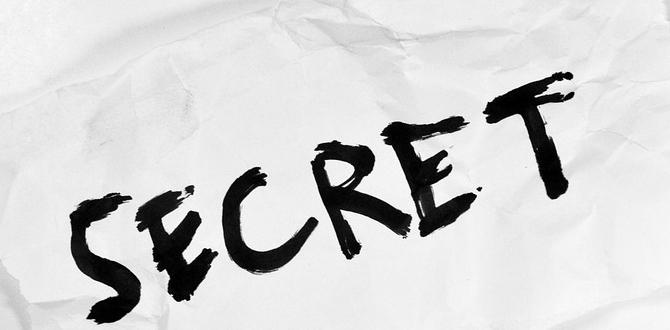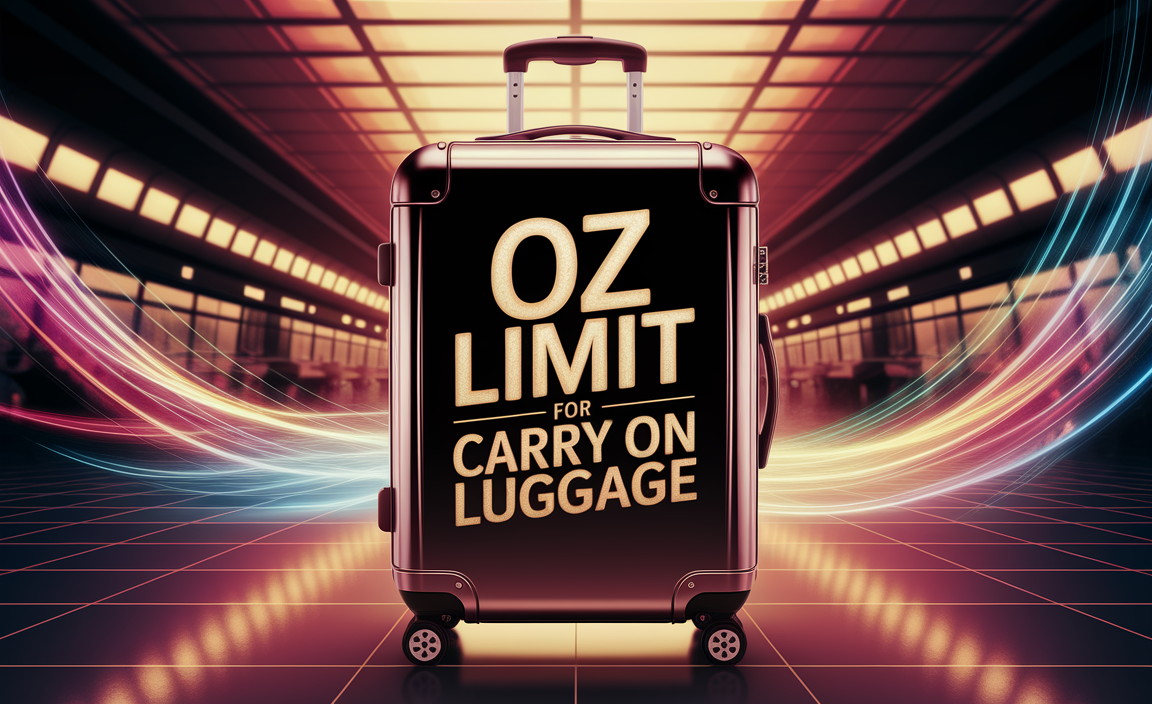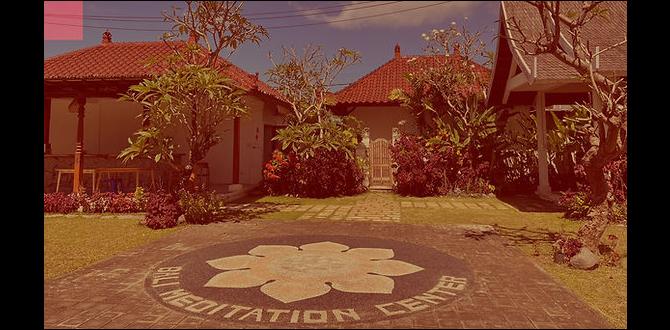Botswana One Week Itinerary: Genius Travel Plan
Book your dream Botswana adventure with this smart one-week itinerary. Discover the best safaris, wildlife, and landscapes with a plan designed for maximum impact and minimal stress, perfect for first-time visitors.
Planning a trip to Botswana can feel like a big undertaking, especially when you only have a week. You want to see the incredible wildlife, experience the unique landscapes, and make the most of your precious travel time. It’s easy to get overwhelmed by all the options and worry about fitting everything in. But don’t worry! This guide breaks down Botswana into a manageable, exciting seven-day journey. Get ready for an unforgettable African safari experience that’s both awe-inspiring and easily doable.
Why Botswana in Just One Week?
Botswana is a safari paradise, renowned for its pristine wilderness and incredible concentrations of wildlife. While you could spend months exploring its vast reserves, a well-crafted one-week itinerary allows you to experience its signature attractions without feeling rushed. This duration is perfect for first-time visitors or those seeking a focused, high-impact safari. You’ll get a taste of the Okavango Delta’s watery wonders and the Kalahari’s arid beauty, ensuring you leave with a deep appreciation for this remarkable country.
A Genius Botswana One Week Itinerary Plan
This itinerary balances iconic safari experiences with realistic travel times. It’s designed to maximize game viewing opportunities while ensuring you have comfortable stays and efficient transfers. We’ll focus on two key areas: the Okavango Delta and Chobe National Park, offering distinct yet complementary safari experiences.
Day 1: Arrival in Maun – Gateway to the Delta
Your Botswana adventure begins in Maun, the safari capital of Botswana and the primary gateway to the Okavango Delta. Upon arrival at Maun International Airport (MUB), you’ll be met and transferred to your lodge or camp. Depending on your arrival time, you can relax, settle in, and perhaps enjoy a leisurely afternoon game drive in a nearby concession or simply soak in the African ambiance.
- Fly into Maun International Airport (MUB).
- Transfer to your pre-booked accommodation in or around Maun.
- Rest and prepare for your exciting safari days ahead.
- Consider a short evening game drive if time permits.
Day 2-3: Okavango Delta – Mokoro and Game Drives
From Maun, you’ll take a scenic light aircraft flight deeper into the Okavango Delta. This perspective from the air is breathtaking, showcasing the intricate waterways and islands of this unique inland delta. You’ll be met at a remote airstrip and transferred to your lodge, often by mokoro (traditional dugout canoe) or game drive vehicle, depending on the lodge’s location. Spend these two days exploring the Delta’s diverse ecosystems.
- Morning: Scenic flight from Maun to your Okavango Delta lodge.
- Afternoon: Settle in, followed by your first mokoro excursion, gliding silently through the channels, looking for aquatic life and diverse bird species.
- Evening: Sundowners overlooking the Delta, followed by a delicious dinner.
- Full Day 3: Experience a combination of activities:
- Mokoro Safaris: Glide through the serene waterways for incredible birdwatching and a chance to spot hippos, crocodiles, and smaller mammals along the banks.
- Walking Safaris: Accompanied by an experienced guide, explore the islands on foot, learning about the smaller details of the bush – tracks, plants, and insects. This offers a more intimate connection with nature.
- Game Drives: Venture out in open 4×4 vehicles for classic game viewing, searching for elephants, lions, leopards, buffalo, and a plethora of other wildlife in the floodplains and woodlands.
The Okavango Delta is a UNESCO World Heritage site, recognized for its stunning natural beauty and the annual floodwaters that create a unique habitat. Learn more about its conservation efforts on the UNESCO World Heritage Centre website.
Day 4: Transfer to Chobe National Park
After a final morning activity in the Delta, you’ll take another light aircraft flight, this time heading towards the Kasane area, the gateway to Chobe National Park. Chobe is famous for its massive elephant herds and is one of the best places in Africa for game viewing. Upon arrival at the Kasane small airport or a nearby lodge airstrip, you’ll be transferred to your accommodation along the Chobe River.
- Enjoy a final morning activity (e.g., mokoro or game drive) in the Okavango Delta.
- Transfer to the airstrip for your scenic flight to Kasane.
- Upon arrival in Kasane, transfer to your lodge or camp, often with views of the Chobe River.
- Settle in and prepare for an afternoon boat cruise.
Day 5-6: Chobe National Park – River and Land Safaris
Chobe National Park offers a completely different safari experience from the Delta. Its vast floodplains and the life-giving Chobe River attract an astonishing array of wildlife. These two days are dedicated to exploring its diverse habitats.
- Day 5:
- Morning: Embark on a game drive into the heart of Chobe National Park. This area is renowned for its large herds of elephants, as well as buffalo, lions, and various antelope species.
- Afternoon: Experience the iconic Chobe River boat cruise. This is an unparalleled way to see wildlife, as animals come to the river to drink, bathe, and cross. You’ll likely see elephants swimming, pods of hippos, crocodiles, and a huge variety of waterbirds.
- Day 6:
- Morning: Another game drive, perhaps exploring a different section of the park, or focusing on finding predators.
- Afternoon: Optional: Another boat cruise, or a dedicated game drive in the Savuti region (if your lodge offers it and it fits the itinerary) known for its leopard and lion populations.
- Evening: Enjoy a farewell dinner, reflecting on the incredible wildlife encounters of your trip.
Chobe National Park is part of the larger Kavango–Zambezi Transfrontier Conservation Area (KAZA TFCA), a collaborative conservation initiative focused on protecting vast wildlife populations across several countries. Learn more about the KAZA TFCA here.
Day 7: Departure from Kasane
Enjoy a final breakfast overlooking the Chobe River. Depending on your flight schedule, you might have time for a short morning activity. You will then be transferred to Kasane International Airport (BBK) for your onward journey, carrying with you memories of Botswana’s wild heart.
- Enjoy a leisurely breakfast.
- Optional last-minute activity or souvenir shopping in Kasane.
- Transfer to Kasane International Airport (BBK) for your departure flight.
Essential Planning Tips
To ensure your Botswana one-week itinerary is as smooth and enjoyable as possible, a bit of preparation goes a long way. Consider these key aspects.
Booking Your Trip
- Best Time to Visit: The dry season (May to October) is ideal for game viewing as animals congregate around water sources. The shoulder seasons (April and November) can offer beautiful landscapes and fewer crowds.
- Lodges and Camps: Botswana offers a range of accommodations, from luxury tented camps to more rustic lodges. Book well in advance, especially if traveling during peak season. Consider all-inclusive packages for ease.
- Flights: Internal flights are a key part of accessing remote camps. Book these through your lodge or a reputable safari operator.
Packing Essentials for Comfort and Practicality
Packing smartly is crucial for a comfortable safari. Think light, neutral colors, and layers.
- Clothing:
- Lightweight, neutral-colored clothing (khaki, brown, olive green). Avoid bright colors and dark blues/blacks which can attract insects.
- Long-sleeved shirts and long pants for sun protection and insect bites, especially for evening game drives.
- A warm fleece or jacket for cool mornings and evenings.
- Comfortable walking shoes or hiking boots.
- Sandals or flip-flops for around the lodge.
- A wide-brimmed hat for sun protection.
- Swimsuit (many lodges have pools).
- Health and Comfort:
- High SPF sunscreen.
- Insect repellent with DEET.
- Personal medication.
- For those who may need them, discreet and reliable adult diapers or pull-ups can offer peace of mind for long travel days or extended game drives, ensuring comfort and confidence throughout your adventure. Similarly, bringing child diapers and related travel gear is essential for families.
- Hand sanitizer for on-the-go cleanliness.
- A basic first-aid kit.
- Gear:
- Binoculars (essential for wildlife spotting!).
- Camera with extra batteries and memory cards.
- A good quality daypack for carrying essentials on drives (water, camera, sunscreen).
- Power adapter and portable charger/power bank.
- A reusable water bottle.
Important Considerations for Travelers
- Visas: Check visa requirements for your nationality well in advance.
- Vaccinations and Health: Consult your doctor or a travel clinic about recommended vaccinations and malaria precautions. Botswana is a malaria-endemic country, especially during the warmer, wetter months.
- Travel Insurance: Comprehensive travel insurance is highly recommended, covering medical emergencies, trip cancellations, and lost luggage.
- Currency: The currency is the Botswana Pula (BWP). While some larger establishments accept credit cards, it’s wise to carry some cash for smaller purchases and tips.
- Connectivity: Wi-Fi is available at most lodges, but can be slow or intermittent. Embrace the opportunity to disconnect and enjoy nature.
Alternative Itinerary Options
While the Okavango Delta and Chobe National Park combination is a popular and effective choice for a week, Botswana offers other incredible regions. If your interests or available time vary slightly, consider these:
| Focus Area | Duration | Key Experiences | Pros | Cons |
|---|---|---|---|---|
| More Kalahari Focus (Central Kalahari Game Reserve / Makgadikgadi Pans) |
3-4 Days | Unique desert wildlife (meerkats, desert-adapted lions), stark landscapes, San cultural experiences, stargazing. | Different landscape, unique desert species, less crowded. | Travel distances can be longer; may require more rugged vehicles/lodges. |
| More Northern Botswana (Linyanti / Selinda Concessions) |
3-4 Days | Excellent predator sightings, large elephant herds, diverse birdlife, exclusive game viewing. | High chance of seeing predators, exclusive feel, superb wildlife photography. | Can be pricier; a bit less variety than Delta + Chobe combo. |
| Victoria Falls (Zimbabwe/Zambia) add-on | 1-2 Days | Spectacular waterfall, adventure activities (bungee jumping, white-water rafting), cultural experiences. | Adds a major natural wonder; easily accessible from Kasane. | Requires crossing borders; adds travel time and planning. |
For this one-week itinerary, we stick to the classic Okavango Delta and Chobe combination as it offers the best balance of iconic Botswana experiences for first-time visitors within a manageable timeframe.
FAQ: Your Botswana Travel Questions Answered
Is one week enough for Botswana?
Yes, one week is sufficient to get a fantastic taste of Botswana’s highlights, particularly if you focus on key areas like the Okavango Delta and Chobe National Park. This itinerary is designed to maximize your experience within seven days, offering a balance of diverse wildlife and landscapes without feeling overly rushed.
What is the best way to travel between locations in Botswana?
For a one-week itinerary, flying between safari destinations is highly recommended. Light aircraft transfers to remote camps are efficient, save considerable travel time compared to driving, and offer spectacular aerial views of the landscape. Road transfers are used for shorter distances within reserves or to/from airports.
How much does a one-week safari in Botswana cost?
Botswana is generally considered a high-end safari destination. A one-week trip with internal flights, mid-range to luxury lodges, and activities can range significantly, typically from $4,000 to $8,000+ USD per person. The cost depends heavily on the level of accommodation, season, and specific parks visited. All-inclusive packages often provide the best value and simplify budgeting.
What should I expect regarding wildlife sightings?
Botswana offers some of the best wildlife viewing in Africa. In the Okavango Delta, expect elephants, hippos, crocodiles, various antelope, and diverse birdlife. Depending on the area, lions, leopards, and wild dogs are also possible. Chobe National Park is famous for its massive elephant herds and buffalo. While sightings are not guaranteed on every drive, Botswana’s well-managed parks and expert guides significantly increase your chances of incredible encounters.
Is Botswana safe for travelers?
Botswana is considered one of the safest countries in Africa for tourists. Crime rates are relatively low, particularly in tourist areas and safari lodges. However, as with any travel, it’s wise to exercise common sense, be aware of your surroundings, and follow the advice of your guides regarding wildlife safety.
Do I need malaria medication for Botswana?
Malaria is present in Botswana, especially in the northern regions like the Okavango Delta and Chobe. It’s recommended to consult with your doctor or a travel clinic about malaria prophylaxis (medication) and other vaccinations before your trip. Using effective insect repellent and wearing protective clothing, especially at dawn and dusk, are also crucial preventative measures.
Packing for Comfort with Specific Needs
As Michael C. Herrera of Journey Essentials, I always emphasize that a comfortable journey is a happy journey. This extends to packing for every traveler’s unique needs. When planning your Botswana adventure, don’t forget to consider personal care items that can significantly enhance your comfort and confidence.
Traveling with Adult Diapers
For individuals who use adult diapers or pull-ups, ensuring comfort and discretion is key. Modern adult diapers are designed for maximum absorbency and leak protection, making them suitable for long game drives or transfers. I recommend:
- Choosing High Absorbency Products: Opt for products specifically designed for overnight use or heavy incontinence, as these offer the best protection for extended periods away from facilities.
- Discreet Packaging: If bringing a supply from home, consider repacking them into smaller, more manageable bags to save space and maintain discretion.
- Leak-Proof Bags: Carry a few small, leak-proof disposal bags in your daypack for hygiene and ease of disposal when away from your lodge. This is simply good practice for any traveler.
- Comfortable Fabrics: Look for diapers made from breathable materials to minimize skin




